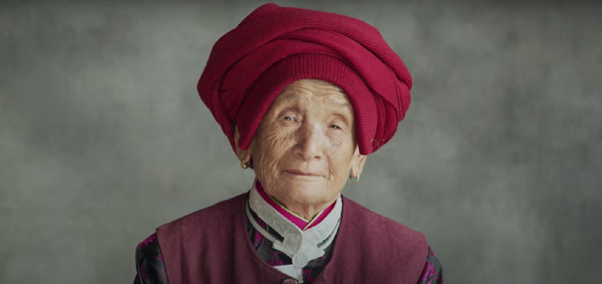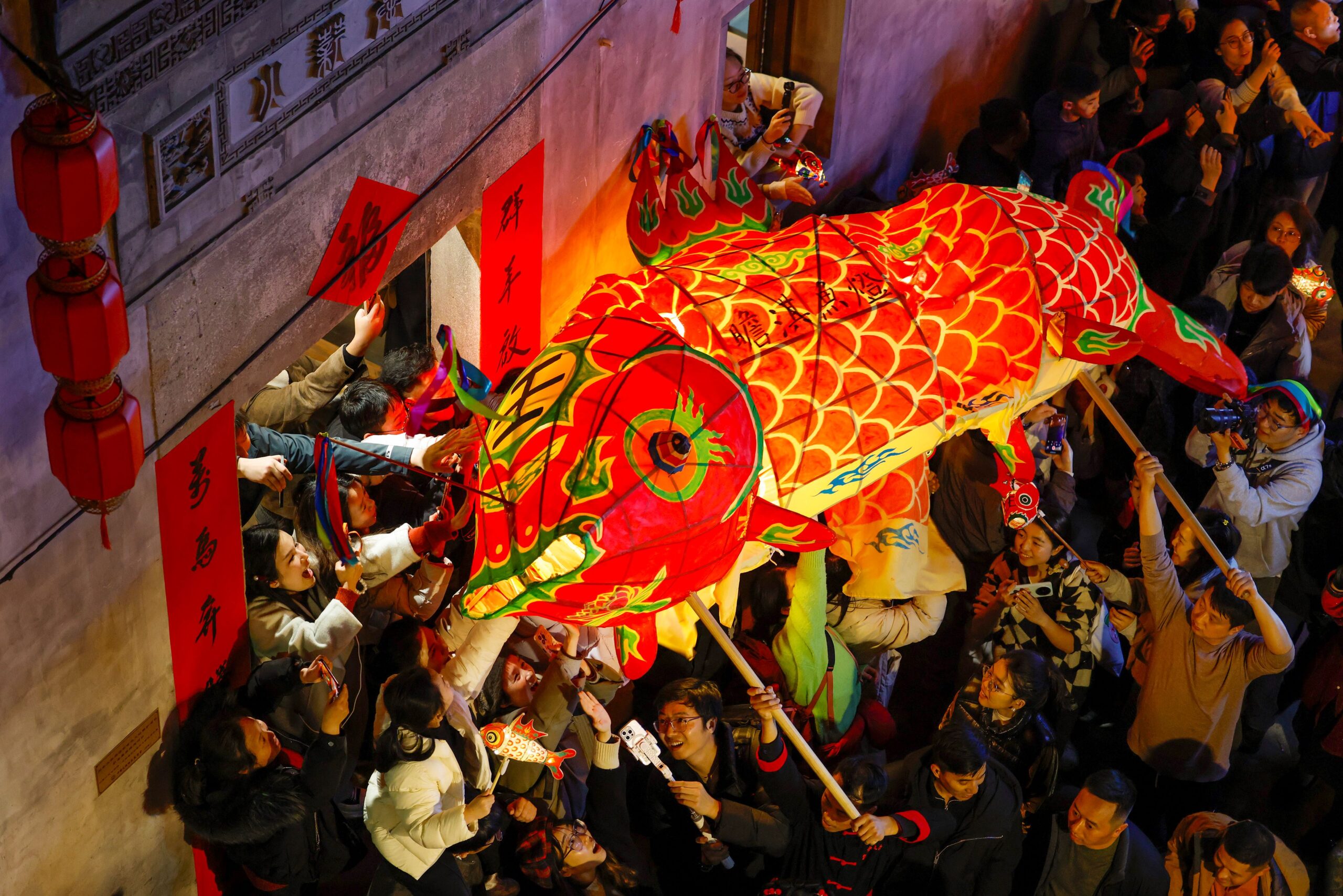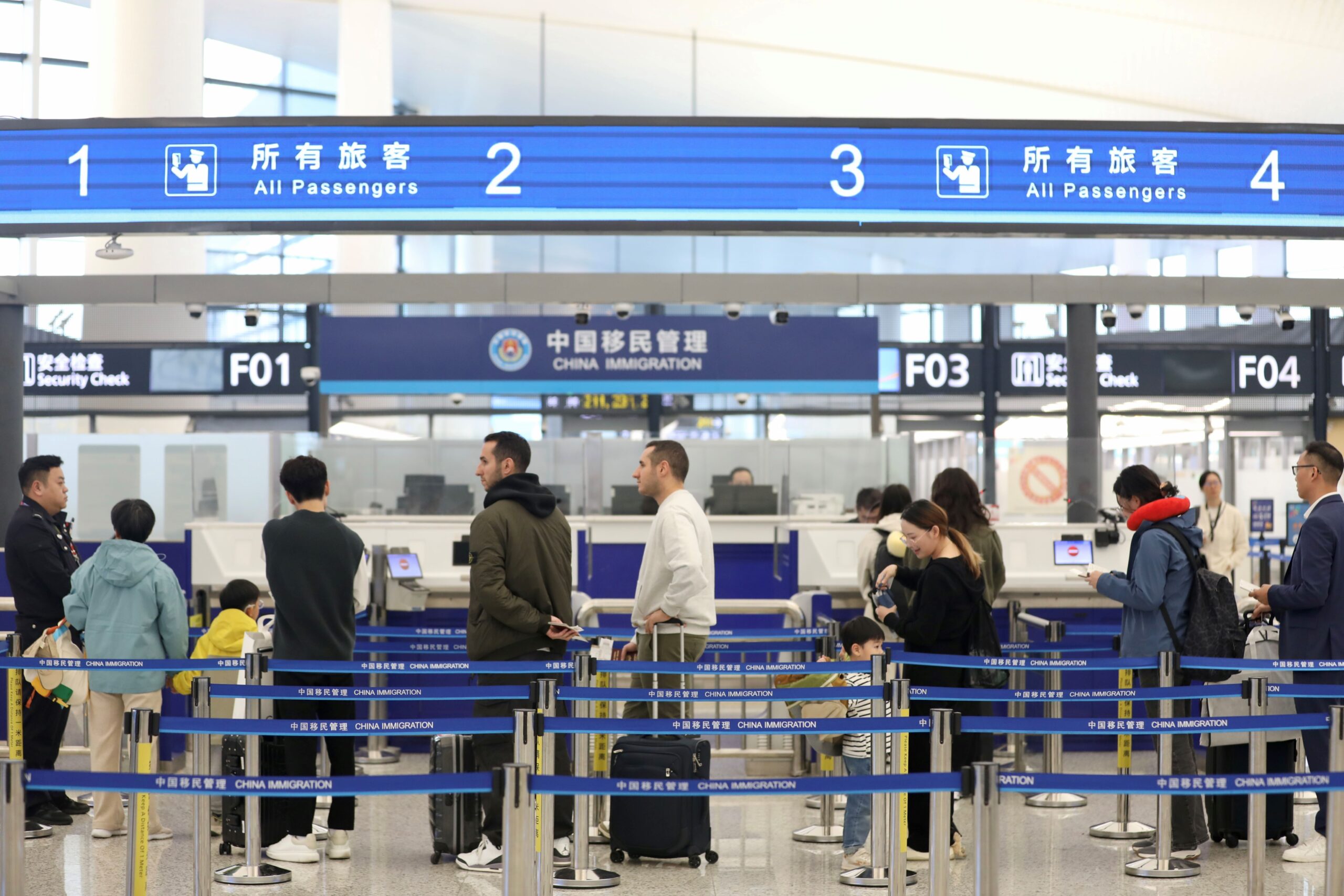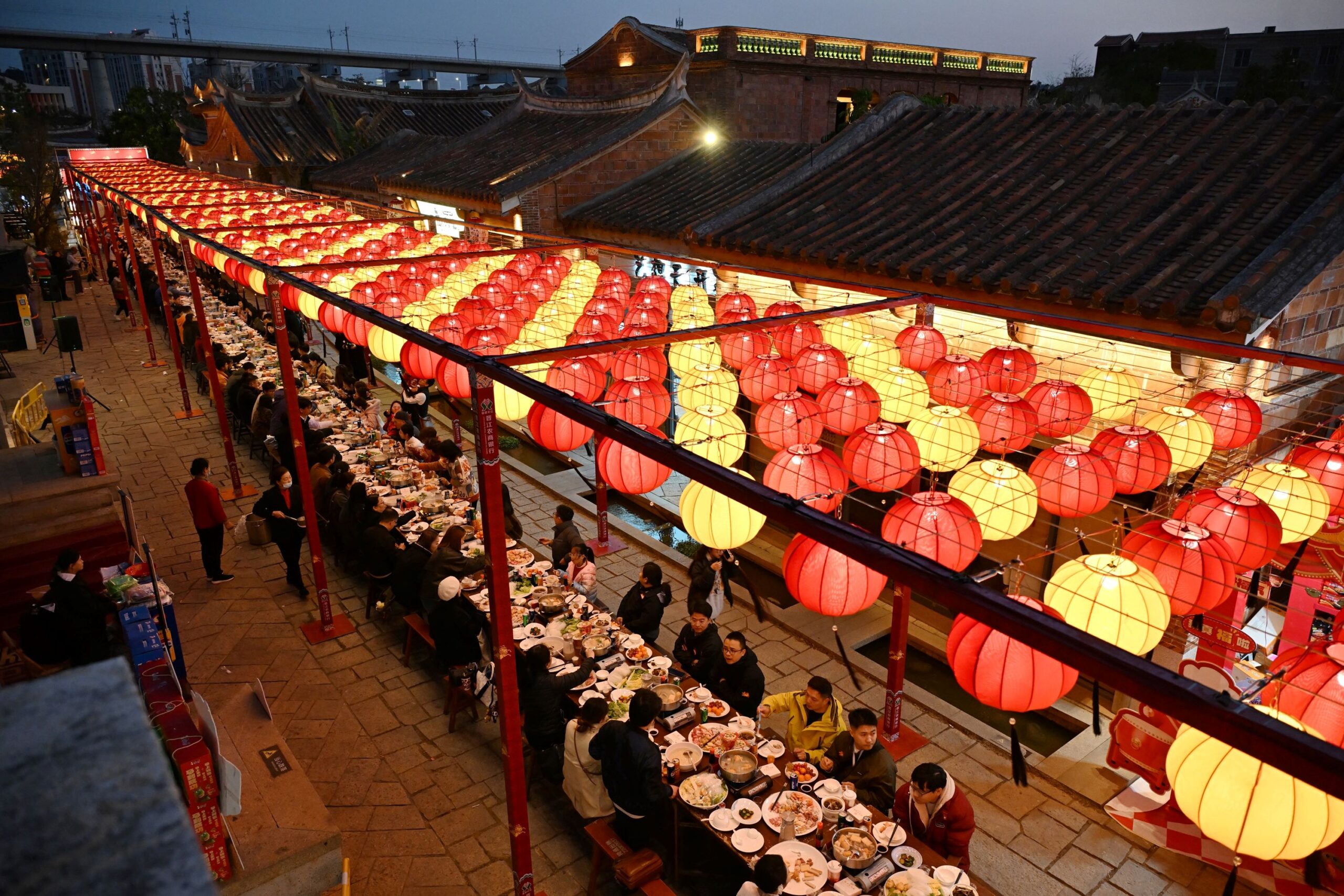‘I Am Mosuo’ documentary about the Mosuo people of southwestern China screened in London.
London-based Yi Crafts and the Mosuo Museum of southwestern China came together to host an event about the Mosuo people of southwestern China.
An age-old ethnic group is known to the world as ‘Mosuo’ or ‘Moso’, they refer to themselves as ‘Na’. Inhabiting the region around Lugu Lake, which borders Sichuan and Yunnan provinces of southwestern China, there are only around 40,000 of the Mosuo people left.
On Saturday, at the Camden Chinese Community Centre for the ESEA Film Night, they screened the “I Am Mosuo” documentary. A powerful film telling the legends, beliefs, lives, and challenges of the Moso people.
Following the film, there was a fascinating panel discussion with cultural experts and filmmakers, and then on Sunday a talk and block-printing workshop.
The team behind the documentary visited Mosuo villages such as Lugu Lake in Yunnan, Yongning, and Muli in Sichuan. The focus was on the Mosuo themselves, with most of the 50-minute documentary featuring Mosuo people, young, middle-aged, and old, speaking to the camera about their lives.
Opening with the creator legend of the Mosuo people, the documentary goes on to touch upon the many facets of the Mosuo’s culture, life, history, and the challenges they face today. Its strengths are how it challenges preconfigured ideas about the Mosuo, letting them explain their culture and lives in their own words.
Anyone who has heard of the Mosuo, Chinese or non-Chinese alike, most likely heard of them as the only Matriarchal society in the world. This is discussed in the documentary, but it is not the sole focus. This is a welcome change that does not reduce the Moso to simply “China’s last matriarchal society” or a “Kingdom of Women,” as they are often referred to.
In reality, the matriarchal label does not suitably explain the Mosuo culture, nor is that the sum total of their culture.
Within China, along with their Matriarchal status, the Mosuo’s form of relationship has become a major fixation. For the Mosuo two people who fall in love, have a relationship, and even children together will not live with each other—instead, living in their own family’s home but visiting each other. In the rest of China, the Mosuo’s relationship has been given the Mandarin Chinese term 走婚 (zǒu hūn). Translated as walking marriage, it is the term widely used outside China to describe the concept as well.
However, for the Moso, this is a term much derided. In the documentary, they explain how they feel it dismisses the realities of their relationships. One speaker in the documentary says it “slanders” the Moso people suggesting they are promiscuous and do not have serious relationships.
In their language, this relationship is called Tisese.
In response to the walking marriage term that suggests promiscuity, a speaker in the documentary poetically states “we are all born with a hunger for love”.
Beyond challenging misconceptions about their culture and educating about their heritage, it also crystallises the challenges facing the Mosuo in the future.
There is no better example than the young school-aged participants of the documentary. While middle-aged adults or elders speak Mosuo’s own language, the young speak standard Mandarin.
As they increasingly interact with wider China and the world, despite more people seeing their culture and way of life, the challenge is that interaction also risks the culture’s existence.
Such as the need to speak Mandarin Chinese over the local language.
Jason Ou, who spent several years teaching in LouShui Village and works with the Mosu Museum travelled to London from China to introduce the screening. He said:
“This film is deeply personal to me, since I’ve met most of the Moso people that are documented. Some being my students when I was teaching in LuoShui Village; some while doing research in other villages; some I lived in their houses for months; and some I attended their funeral.
“We decided to show this film because it gives a glimpse of what the way of living for Moso people is like traditionally while introducing some of the current problems that they are facing today.”
Jialiang Dou from Yicrafts who curated the event said: “This event is significant because it gives the Moso people their own unique cultural expression in London… they can bring more voices and possibilities to London’s culture.”
Between the documentary, talk, and hands on woodblock printing – there was ample opportunity for some London residents to learn about the Mosuo people. Delving into a far less talked about facet of China.
If you liked this article why not read: Bridging Tradition and Modernity: Jialiang Dou’s Curator Journey











